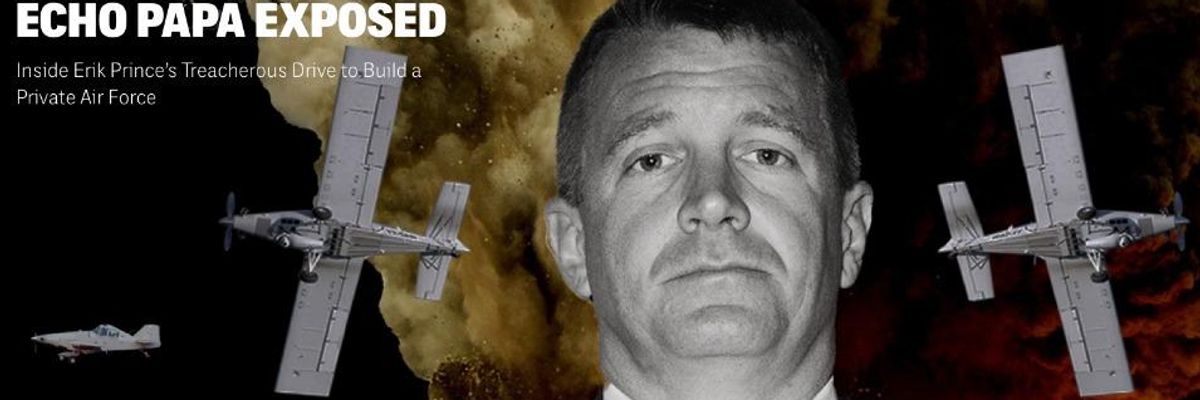in November 2014, a black Mercedes SUV pulled onto the tarmac of an Austrian specialty aviation company 30 miles south of Vienna. Employees of the firm, Airborne Technologies, which specialized in designing and equipping small aircraft with wireless surveillance platforms, had been ordered to work that weekend because one of the company's investors was scheduled to inspect their latest project.
For four months, Airborne's team had worked nearly nonstop to modify an American-made Thrush 510G crop duster to the exact specifications of an unnamed client. Everything about the project was cloaked in secrecy. The company's executives would refer to the client only as "Echo Papa," and instructed employees to use code words to discuss certain modifications made to the plane. Now the employees would learn that Echo Papa also owned more than a quarter of their company.
A fit, handsome man with blond hair and blue eyes got out of the Mercedes and entered Airborne's hanger. Echo Papa, who was often just called EP, shook hands with a dozen Airborne employees and looked over the plane. "He was the sun, and all the management were planets rotating around him," said one person present that day.
One of the mechanics soon recognized Echo Papa from news photos -- he was Erik Prince, founder of the private security firm Blackwater. Several of the Airborne staff whispered among themselves, astonished that they had been working for America's best-known mercenary. The secrecy and strange modification requests of the past four months began to make sense. In addition to surveillance and laser-targeting equipment, Airborne had outfitted the plane with bulletproof cockpit windows, an armored engine block, anti-explosive mesh for the fuel tank, and specialized wiring that could control rockets and bombs. The company also installed pods for mounting two high-powered 23 mm machine guns. By this point, the engineers and mechanics were concerned that they had broken several Austrian laws but were advised that everything would be fine as long as they all kept the secret.
Prince congratulated everyone for making the plane "rugged" and then left. The plane was due in South Sudan, where it was urgently needed to salvage Prince's first official contract with his new company, Frontier Services Group. Prince was eager to get the Thrush 510G in the air.
Read the full article at The Intercept.

